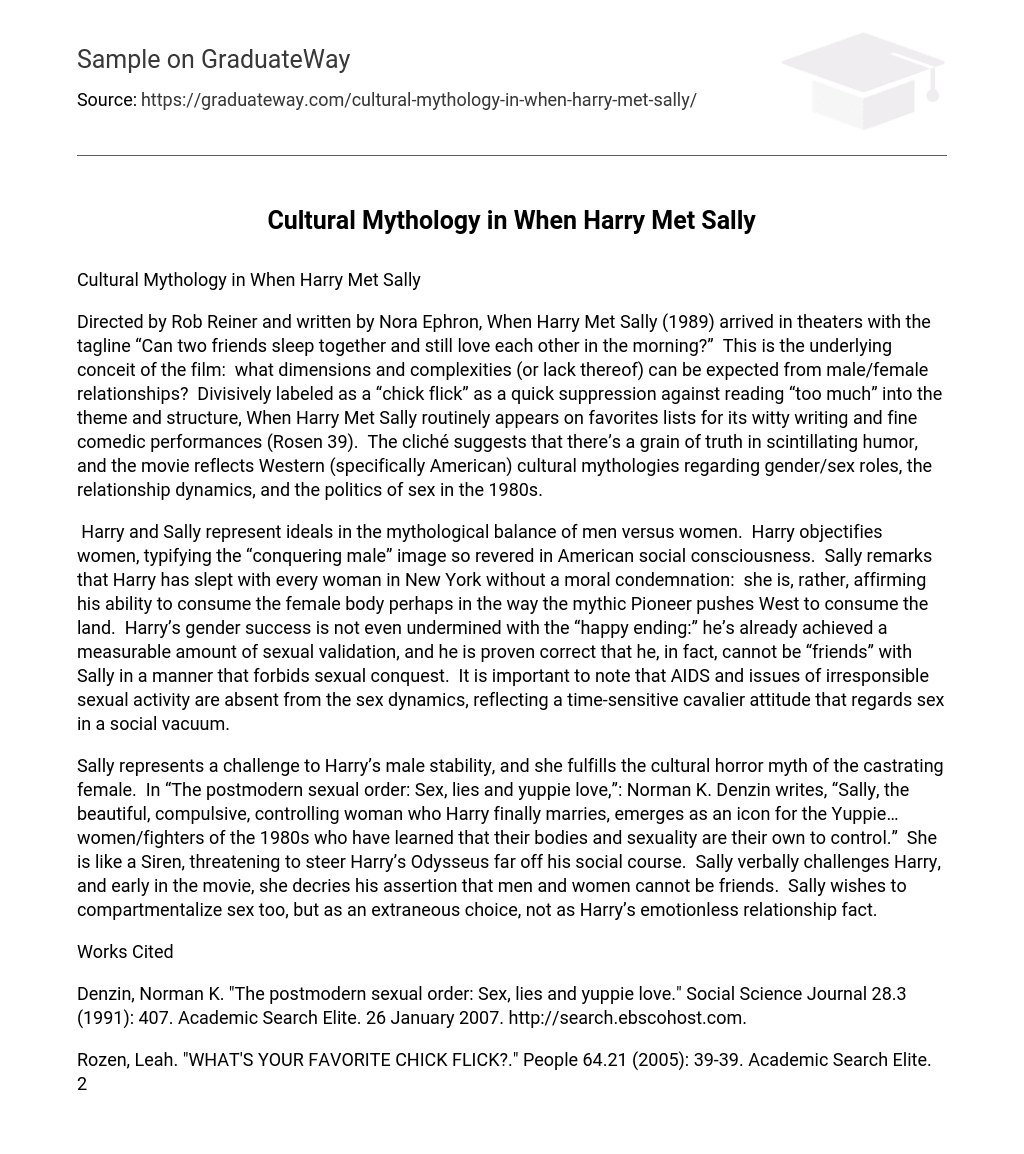Directed by Rob Reiner and written by Nora Ephron, When Harry Met Sally (1989) arrived in theaters with the tagline “Can two friends sleep together and still love each other in the morning?” This is the underlying conceit of the film: what dimensions and complexities (or lack thereof) can be expected from male/female relationships?
Divisively labeled as a “chick flick” as a quick suppression against reading “too much” into the theme and structure, When Harry Met Sally routinely appears on favorites lists for its witty writing and fine comedic performances (Rosen 39). The cliché suggests that there’s a grain of truth in scintillating humor, and the movie reflects Western (specifically American) cultural mythologies regarding gender/sex roles, the relationship dynamics, and the politics of sex in the 1980s.
Harry and Sally represent ideals in the mythological balance of men versus women. Harry objectifies women, typifying the “conquering male” image so revered in American social consciousness. Sally remarks that Harry has slept with every woman in New York without a moral condemnation: she is, rather, affirming his ability to consume the female body perhaps in the way the mythic Pioneer pushes West to consume the land.
Harry’s gender success is not even undermined with the “happy ending:” he’s already achieved a measurable amount of sexual validation, and he is proven correct that he, in fact, cannot be “friends” with Sally in a manner that forbids sexual conquest. It is important to note that AIDS and issues of irresponsible sexual activity are absent from the sex dynamics, reflecting a time-sensitive cavalier attitude that regards sex in a social vacuum.
Sally represents a challenge to Harry’s male stability, and she fulfills the cultural horror myth of the castrating female. In “The postmodern sexual order: Sex, lies and yuppie love,”: Norman K. Denzin writes, “Sally, the beautiful, compulsive, controlling woman who Harry finally marries, emerges as an icon for the Yuppie… women/fighters of the 1980s who have learned that their bodies and sexuality are their own to control.” She is like a Siren, threatening to steer Harry’s Odysseus far off his social course. Sally verbally challenges Harry, and early in the movie, she decries his assertion that men and women cannot be friends. Sally wishes to compartmentalize sex too, but as an extraneous choice, not as Harry’s emotionless relationship fact.
Works Cited
- Denzin, Norman K. “The postmodern sexual order: Sex, lies and yuppie love.” Social Science Journal 28.3 (1991): 407. Academic Search Elite. 26 January 2007. http://search.ebscohost.com.
- Rozen, Leah. “WHAT’S YOUR FAVORITE CHICK FLICK?.” People 64.21 (2005): 39-39. Academic Search Elite. 26 January 2007. http://search.ebscohost.com.





